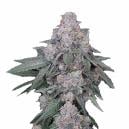How CBD Can Be Used To Help Treat Nicotine Addiction
Published :
Jul 26, 2018
Categories :
Medical cannabis

Once considered a highly addictive substance, cannabis proves the blame is wrongly placed. A recent study points to the cannabinoid CBD as a potential component in tackling nicotine addiction.
Nicotine delivered via tobacco smoke is highly addictive. Several medical institutions have even asserted that nicotine is as addictive as heroin or cocaine. This isn't altogether surprising. Given that a fair amount of the world population smokes cigarettes—a prime source of nicotine—overcoming this addiction can be a daunting task.
For a long time, cannabis was seen as both a potentially dangerous and addictive substance, compounding the unhealthy habits of smoking and drinking alcohol, for example. However, new research suggests that CBD, an abundant non-psychoactive cannabinoid, may be able to combat nicotine addiction.
THE PREVALENCE OF NICOTINE ADDICTION
Many attempts at a solution for this addiction already exist, aimed at supporting those who want to quit smoking. Nicotine patches, support groups, e-cigarettes, and nicotine gum are just some of the helpful but imperfect options. The World Health Organisation estimates tobacco smoke to contain hundreds of harmful chemicals, many of which are attributed to causing cancer.
Giving up cigarettes is done for many reasons: health, improved lifestyle, financial gain, or even for the sake of family members or partners. Regardless of the reason, relinquishing cigarettes and nicotine from your life is no easy task. The reason for this stems from the effect nicotine has on our brain.
When inhaling cigarette smoke, small droplets of nicotine-containing tar are absorbed into the bloodstream via our lungs. Nicotine acts as a stimulant, enabling us to enter a relaxed, yet alert state. Often, smokers claim a cigarette is needed when they feel stressed or anxious. Our mind makes the connection between this stimulation and relief of distress, creating a self-perpetuating cycle of use. Even those who have undergone illnesses related to their smoking may continue to smoke afterwards or even during their treatment. Nicotine addiction is incredibly powerful.
HOW NICOTINE ADDICTION WORKS
The reason our mind acts in this way is because of the chemical dopamine. Responsible for stimulating feelings of pleasure and reward, dopamine levels increase as a result of nicotine entering the body.
Dopamine isn't just released when we intake nicotine. Eating, drinking, or having sex all stimulate the release of dopamine. When dopamine is released, it travels to the dorsal striatum, where it links the activity to our brain's ability to identify reward. Dopamine also goes to the amygdala. The amygdala helps our brains learn emotional responses. As such, pleasurable memories can be created when using nicotine, causing us to crave the stimulation that the brain knows will release the feel-good chemical dopamine.
USING CBD FOR NICOTINE ADDICTION
Now that we know how addiction works, and why nicotine is so addictive, how can cannabidiol (CBD) assist in kicking the habit?
An answer lies in a clinical study from 2013, first published in the peer-reviewed journal Addictive Behaviors. The effectiveness of CBD was tested against a placebo in the treatment of tobacco addiction. 24 subjects were recruited, all of whom smoked more than ten cigarettes per day. Each was given an inhaler to use whenever they felt the desire to smoke. All 24 candidates were female, and the study was conducted double-blind. Neither the researchers or the test subjects knew whether their inhaler contained CBD or a placebo.

WHAT DOES THE RESEARCH SHOW?
Treatment lasted seven days, during which candidates were asked to record their cravings and anxiety on a daily basis. Follow-up took place 21 days after the end of the trial. The findings showed a 40% reduction in cigarette consumption during the treatment week for those who received CBD, whereas there was no change in the placebo group. However, by day 21, both groups had returned to their initial conditions.
The authors surmised that “the preliminary data presented here suggest that CBD may be effective in reducing cigarette use in tobacco smokers”. The study did also acknowledge that a larger sample group would be needed with a more controlled follow-up method to quantify the exact impact.
THE IMPORTANCE OF THE ENDOCANNABINOID SYSTEM
While we’re yet unable to pinpoint the specific trigger for CBD’s reduction of cigarette consumption, one theory relates to the way our endocannabinoid system reacts upon being introduced with CBD. Our endocannabinoid system is comprised of a series of receptor sites throughout our body, predominantly the CB1 and CB2 receptors. When stimulated, these receptors perform various chemical reactions that impact our physiology.
For instance, CBD reduces the body's ability to release an enzyme (FAAH), which is responsible for breaking down anandamide. Anandamide is an endocannabinoid similar to dopamine, insofar as it acts like a natural antidepressant for the body, promoting pleasant sensations. By taking CBD when users felt a craving for nicotine, they could trick their body into feeling a similar pleasurable sensation, only without the need for nicotine.
Given this is the only study of its kind to be published, further research, alongside a significantly larger sample size, will be needed to clarify the conclusion the authors made. The results are promising; and given CBD’s increasing popularity, a viable means of tackling nicotine addiction seems well within reach.






































